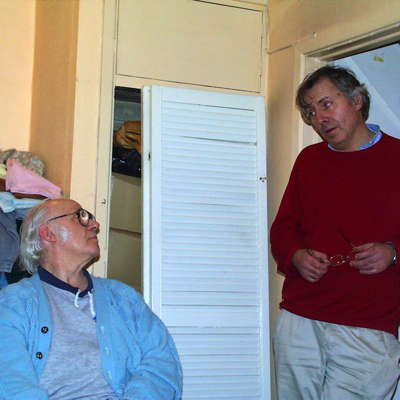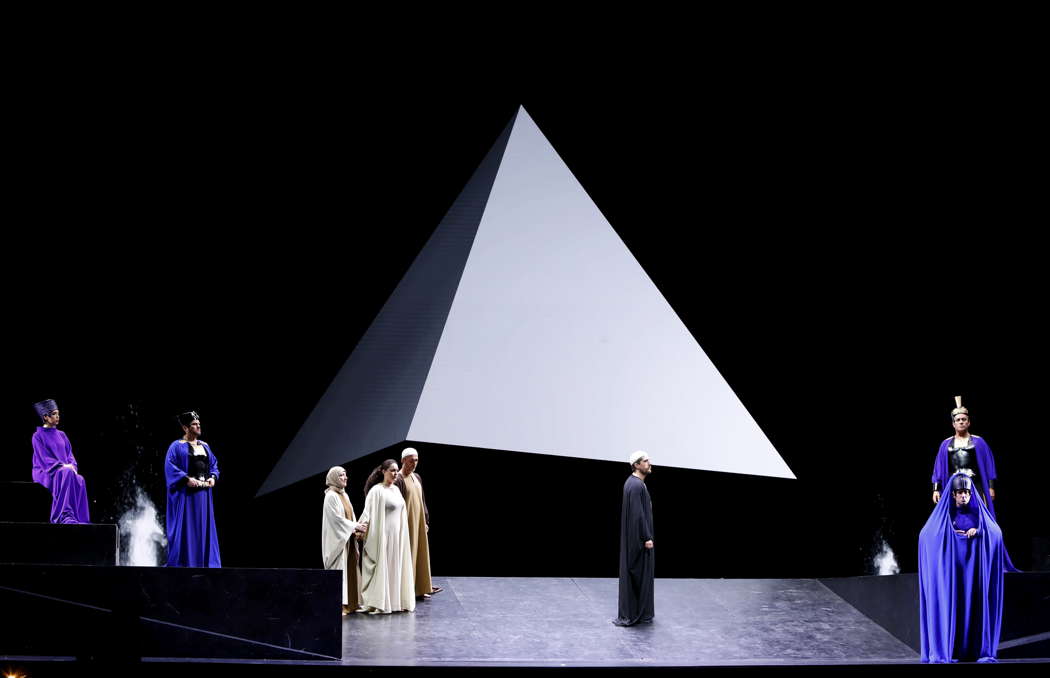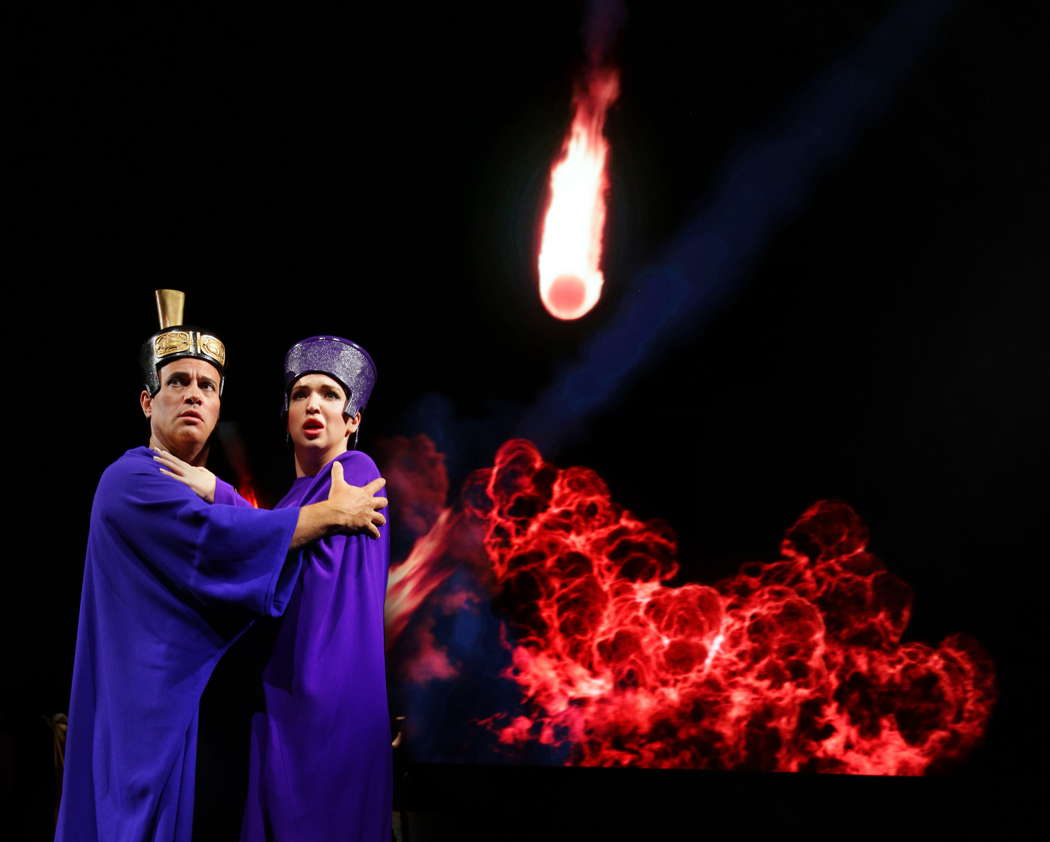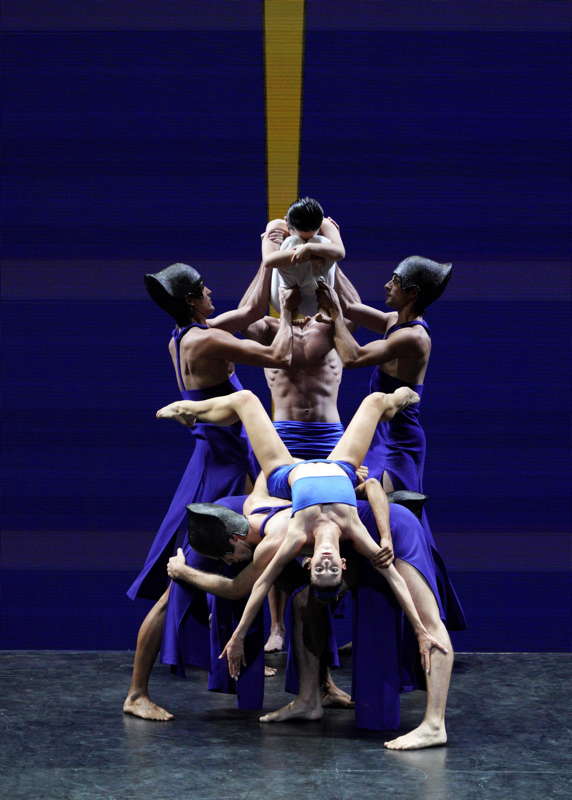- Ilkka Kuusisto
- Vittorio Gui
- Jonathan Dove
- Neville Cardus
- organ
- West Cork Chamber Music Festival
- Mozart: The Magic Flute
- Bernstein
 25 YEARS: Classical Music Daily celebrates twenty-five years of daily publication with an hour-long video featuring some of our regular contributors.
25 YEARS: Classical Music Daily celebrates twenty-five years of daily publication with an hour-long video featuring some of our regular contributors.
 DISCUSSION: What is a work? John Dante Prevedini leads a discussion about The performing artist as co-creator, including contributions from Halida Dinova, Yekaterina Lebedeva, Béla Hartmann, David Arditti and Stephen Francis Vasta.
DISCUSSION: What is a work? John Dante Prevedini leads a discussion about The performing artist as co-creator, including contributions from Halida Dinova, Yekaterina Lebedeva, Béla Hartmann, David Arditti and Stephen Francis Vasta.
A Great Rossini Opera Festival Opening
GIUSEPPE PENNISI reviews 'Moïse et Pharaon'
Moïse et Pharaon opened the Rossini Opera Festival (ROF) on 9 August 2021. This review is based on the 6 August preview, to which music critics were admitted. In fact, due to the restrictions imposed by the pandemic, this year the ROF was able to sell less than half of the available seats. Even though, as for the Salzburg summer festival, the demand for tickets for the ROF is usually equal to twice the capacity: about half is by foreigners.
In Rossini's catalogue, Moïse et Pharaon is a rarely performed opera, mainly due to the high production costs it entails - large orchestra, large chorus, corps de ballet, and 'special effects' for the plagues imposed by God on Egypt and the crossing of the Red Sea which closes, causing the drowning of the Egyptian armies.
Firstly, the full French edition (in the score of the publisher Troupenas) was performed a few times. In addition to various concert performances, we must count at least those, conducted by Sarah Caldwell, in Boston and Philadelphia in the 1970s. In Pesaro at the ROF, it was staged in 1997 by the late Graham Vick with the then very young Jurowski in the pit. In 2003 and 2010, Riccardo Muti presented it for the inauguration of the Teatro alla Scala and the Teatro dell'Opera di Roma respectively. On these two occasions, and in a production for the Salzburg Festival in 2009, Muti's approach was not philological: the final 'canticle of thanksgiving' was cut and the opera ended in diminuendo after the annihilation of the Egyptians by the Red Sea. It must be said that many music critics prefer a 'Muti' ending.
Secondly, Moïse is indeed an important work, but not one of Rossini's great masterpieces. Just as Le siège de Corinthe is a pale copy of the Neapolitan Maometto Secondo, Moïse shows a tired vein compared to the far superior, from both a dramaturgical and musical point of view, Mosé in Egitto, also of Rossini's Neapolitan period. Rossini was thirty-five years old when he composed Moïse, but he was already fatigued by an artistic life too fast, afflicted by the death of his mother (to whom he had a morbid attachment), prey to the prodromes of hypochondria that would torment him for at least two decades as well as in search of new artistic paths. Le conte Ory, an erotic work by a thirty-six-year-old full of panache, and Guillaume Tell, a masterpiece launched towards the future, were hints of which, however, Moïse opened only the path; Rossini put himself in retirement at the age of thirty-seven and remained there for about forty years.
Everything that was compact (and therefore effective) in Mosé in Egitto is dilated, at times trawled, in Moïse. The admirable opening scene is watered down, and transported to the second act. The love plot acquires, unnecessarily, pre-eminence. There's only one important innovation: as in 'Le siège', and in line with the French custom of the time: the people (and therefore the chorus) becomes the protagonist, anticipating Guillaume Tell but making the figure of the supreme commander of the Jews even more black-and-white.
Having said that about the limits of the dramaturgy and the score of Moïse, the ROF presented a luxury edition; I hope that it will be taken up by other theatres. Firstly, Pier Luigi Pizzi, at 91, offers a great stage direction (as well as design of stage sets and costumes). with the assistance of Massimo Gasparon (responsible for lighting). Pizzi takes us to a stylized Egypt where the pastel colour dominates with delicate shades.

A scene from Moïse et Pharaon at the Rossini Opera Festival. Photo © 2021 Studio Amati Bacciardi
The plagues are represented with elegant, and never intrusive, projections that are also stylized. The chorus (of the Teatro Ventidio Basso in Ascoli Piceno, prepared by Giovanni Farina) is, as a true protagonist, at the centre of the action. Pizzi shows, once again, his skills in managing the masses and making singers act. He never slides into a Cecil B DeMille The Ten Commandments imitation.

Erwin Schrott and Vasilisa Berzhanskaya in Moïse et Pharaon at the Rossini Opera Festival. Photo © 2021 Studio Amati Bacciardi
The dazzling orchestral writing is the innovation of Moïse compared to other Rossini operas and especially to the previous Mosé in Egitto. Giacomo Sagripanti effectively conducts the Rai orchestra, highlighting the colours and shades, including indications of what would become the rich operatic orchestration of romanticism.
The vocal cast is quite respectable, starting with the two deuteragonists. Roberto Tagliavini, sometimes a little too pushed, is the leader of the Jews. In the role of Pharaoh is Erwin Schrott, who had already played the part with Muti at La Scala about twenty years ago. In the male group, Andrew Owens plays Aménophis, the son of Pharaoh in love with the Jewish Anaï (Eleonora Buratto): a well-set voice, excellent phrasing, high pitch but small volume that stood out especially in the duets with Buratto (who deserved several open stage applause and ovations at the curtain calls). The two main female protagonists were also applauded: Vasilisa Berzhanskaya and Monica Bacelli.
The long ballets of the third act - at the time a requirement of the Académie Royale de Musique (patron of the opera) – are always a problem. The choreography of Gheorghe Iancu solves them with gymnastic games in the Temple of Isis.

Ballet choreography in Moïse et Pharaon at the Rossini Opera Festival. Photo © 2021 Studio Amati Bacciardi
This was a great success.
Copyright © 16 August 2021
Giuseppe Pennisi,
Rome, Italy

MORE ARTICLES ABOUT THE ROSSINI OPERA FESTIVAL


